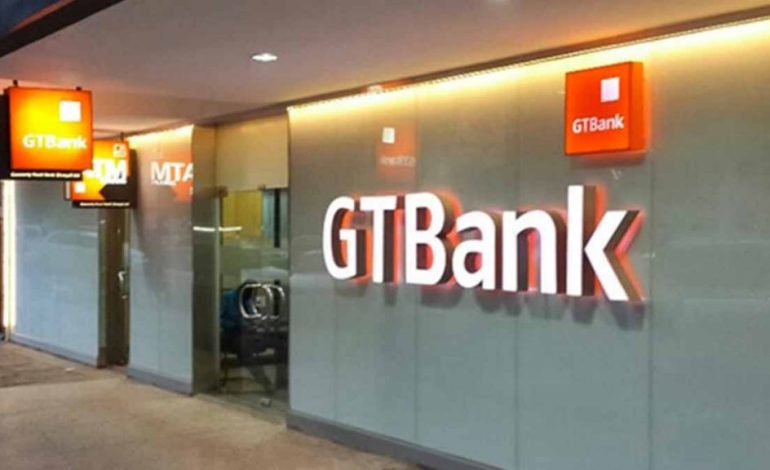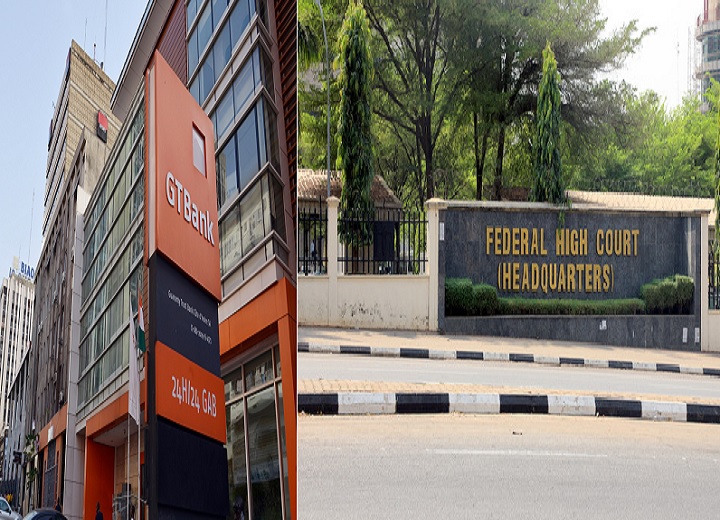June 21, 2025 – In a significant legal victory for
GTBank Loses ₦30bn MKO Abiola Mansion Case: Court of Appeal Rules for Agboola Abiola
, son of the late Nigerian business magnate and politician Chief M.K.O. Abiola, the Court of Appeal in Lagos has overturned a 2013 Federal High Court judgment that had allowed Guaranty Trust Bank Plc (GTBank) to foreclose on a luxurious 44-room mansion in Ikoyi, Lagos, valued at ₦30 billion.
The ruling, delivered on June 18, 2025, in Appeal No. CA/L/888/2014, marks the culmination of a decade-long legal battle over the property, exposing critical discrepancies in GTBank’s mortgage documentation and raising questions about banking practices in Nigeria. This article delves into the intricate details of the case, its implications for borrower rights, and the broader context of property disputes in Nigeria’s financial sector, drawing on multiple sources to provide a comprehensive analysis.

Background of the Dispute
The Abiola Legacy and the Ikoyi Mansion
Chief M.K.O. Abiola, widely regarded as the winner of Nigeria’s annulled June 12, 1993, presidential election, was a towering figure in Nigerian business and politics until his death in 1998.
His vast business empire spanned telecommunications, oil, publishing, and real estate, leaving a significant legacy for his family. Among his assets was a 44-room mansion on Queens Drive, Ikoyi, Lagos, a prime location known for its exclusivity and high property values. Valued at ₦30 billion (approximately $18 million USD at current exchange rates), the mansion is a symbol of the Abiola family’s wealth and influence.
Alhaji Agboola Abiola, one of M.K.O. Abiola’s sons, and RCN Networks Ltd, a company linked to the family, became embroiled in a legal dispute with GTBank over this property following a loan agreement.

The mansion, a sprawling architectural marvel, was allegedly used as collateral for a loan facility extended by GTBank to RCN Networks Ltd. The dispute centers on the validity of the tripartite legal mortgage that GTBank claimed gave it the right to foreclose on the property.
The Loan Agreement and Foreclosure Attempt
The origins of the dispute trace back to two loan facilities extended by GTBank to RCN Networks Ltd: one for ₦508 million and another for ₦1 billion. According to court documents, GTBank consolidated these loans without the explicit consent of the borrowers, a move that would later become a focal point of the appeal. The bank relied on a tripartite legal mortgage, registered at the Lagos State Land Registry, to secure the loans, claiming that the Ikoyi mansion was part of the collateral.
In 2013, the Federal High Court in Lagos granted GTBank’s motion, filed on April 8, 2014, to foreclose on the property, citing default on the loan repayment. The ruling allowed GTBank to appoint a receiver and seize the mansion, a decision that sparked outrage from the Abiola family, who alleged foul play in the documentation process. The Federal High Court’s decision was based on the assumption that the tripartite legal mortgage was valid and that GTBank had the legal right to enforce foreclosure.
The Appeal: A Turning Point
The Abiola family, through RCN Networks Ltd and Alhaji Agboola Abiola, filed an appeal (CA/L/888/2014) challenging the Federal High Court’s ruling. Represented by Dr. Charles Adeogun-Phillips, SAN, the appellants argued that the foreclosure was unlawful due to significant irregularities in the mortgage documentation. The appeal, heard by a three-member panel led by Justice Paul Bassi, focused on two primary issues:
-
Fraudulent Documentation: The appellants alleged that the execution page of the tripartite legal mortgage was fraudulently extracted from a different agreement and appended to the mortgage deed without their consent.
-
Unauthorized Loan Consolidation: GTBank was accused of merging the ₦508 million and ₦1 billion loans into a single facility without the appellants’ approval, using a single execution page to secure both transactions.
The Court of Appeal’s ruling on June 18, 2025, was unanimous in favor of the appellants. The court found “glaring discrepancies” in the execution of the mortgage deed, describing GTBank’s foreclosure as “unlawful” and “baseless.” Justice Bassi faulted the lower court for failing to evaluate critical inconsistencies in the documents submitted by GTBank to the Lagos State Land Registry. As Quoted by @ARISEtv on X, the court ruled that GTBank’s actions lacked a legal basis, effectively restoring ownership of the mansion to Alhaji Agboola Abiola and RCN Networks Ltd.
The court discharged all charges and encumbrances levied by GTBank on the property, marking a significant victory for the Abiola family and setting a precedent for borrower rights in Nigeria’s banking sector.
Legal and Financial Implications
Borrower Rights and Banking Practices
The Court of Appeal’s ruling has far-reaching implications for borrower rights in Nigeria, particularly in disputes involving mortgage agreements and foreclosure proceedings. The case highlights several critical issues:
-
Transparency in Loan Agreements: The unauthorized consolidation of loans by GTBank raises questions about transparency in banking practices. Borrowers must be fully informed and provide explicit consent for any changes to loan terms or collateral agreements.
-
Due Diligence in Documentation: The court’s finding of a fraudulent execution page underscores the importance of rigorous documentation processes. Banks must ensure that all legal documents are authentic and properly executed to avoid legal challenges.
-
Judicial Oversight: The Federal High Court’s failure to identify discrepancies in GTBank’s documentation serves as a cautionary tale for lower courts. The Appeal Court’s intervention demonstrates the judiciary’s role in protecting citizens from unlawful financial practices.
Posts on X, such as those by @crispnigeria, emphasize the significance of this ruling for borrower rights, noting that it serves as a reminder of the need for accountability in Nigeria’s banking sector.
Impact on GTBank’s Reputation
Guaranty Trust Bank, one of Nigeria’s leading financial institutions, has faced scrutiny following the ruling. The allegations of fraudulent documentation and unauthorized loan consolidation could damage its reputation, particularly among high-net-worth clients and corporate borrowers. While GTBank, represented by Norrison Quakers, SAN, has not issued a public statement on the ruling as of June 21, 2025, the bank may face pressure to review its internal processes to prevent similar disputes in the future.
The case also comes at a time when GTBank is navigating other challenges. For instance, a recent report noted that Gbank financial director Alan Sklar sold $65,167 in stock, which, while unrelated to the Abiola case, could signal internal financial adjustments.
The Broader Context: Property Disputes in Nigeria
The GTBank-Abiola dispute is not an isolated incident but part of a broader pattern of property-related legal battles in Nigeria, particularly in Lagos, where real estate is a significant driver of wealth and investment. The Ikoyi mansion, located on Queens Drive, is emblematic of the high-stakes nature of property ownership in Nigeria’s economic capital.
Real Estate and Banking in Lagos
Lagos, Nigeria’s commercial hub, is home to some of Africa’s most valuable real estate. Properties in areas like Ikoyi, Victoria Island, and Lekki command prices comparable to global cities, with the Ikoyi mansion’s ₦30 billion valuation reflecting the premium placed on prime locations. However, the real estate sector is fraught with challenges, including:
-
Disputes Over Collateral: Banks frequently use high-value properties as collateral for loans, but disputes arise when borrowers contest the terms or execution of mortgage agreements, as seen in the Abiola case.
-
Fraud and Forgery: The allegations of a forged mortgage deed in this case highlight the prevalence of fraudulent practices in Nigeria’s real estate and banking sectors. Similar issues have been reported in other high-profile cases, such as the University of Lagos’s warning about procurement scams.
-
Judicial Backlog: The decade-long duration of the GTBank-Abiola dispute underscores the slow pace of Nigeria’s judicial system, which can delay justice for both borrowers and lenders.
Comparative Cases
The Abiola case bears similarities to other property disputes reported recently:
-
In Malawi, footballer Gabadinho Mhango faced a bank’s attempt to seize his R1.2 million home over unpaid debts, highlighting the global nature of such conflicts.
-
In the UK, a US billionaire faced backlash for allegedly tapping into neighbors’ water supplies for his mansion, illustrating how property disputes often involve complex legal and ethical issues.
-
In the US, celebrities like Kim Zolciak and Kroy Biermann were forced out of their mansion by US Marshals after failing to resolve financial disputes, showing parallels to foreclosure battles.
These cases underscore the universal challenges of balancing property rights, financial obligations, and legal accountability, with the Abiola ruling serving as a landmark case in Nigeria’s context.
Public Reaction and Social Media Sentiment
The ruling has generated significant buzz on social media, particularly on X, where users have celebrated the Abiola family’s victory and criticized GTBank’s actions. Key posts include:
-
@lindaikeji: “The Court of Appeal in Lagos has overturned a 2013 ruling that allowed GTBank to seize a ₦30bn Ikoyi mansion owned by Alhaji Agboola Abiola, son of the late M.K.O. Abiola.”
-
@NaijaOnPoint: “Abiola’s family floors GTBank as A’Court overturns takeover of N30bn mansion.”
-
@Nigerialawyers: “Mortgage Document Unsigned And Forged” — Court Of Appeal Overturns GTBank’s N30B Mansion Seizure From Abiola’s Son.”
The sentiment on X reflects a mix of support for the Abiola family and skepticism about banking practices in Nigeria. Hashtags like #TopStories and #borrowerrightsNigeria have trended, indicating public interest in the case’s implications for financial justice.
The Abiola Family’s Legacy
The ruling not only restores the Ikoyi mansion to Alhaji Agboola Abiola but also reinforces the Abiola family’s enduring influence in Nigeria. M.K.O. Abiola’s legacy as a business tycoon and democratic icon continues to resonate, with his family’s legal battles often drawing public attention. The mansion, a tangible symbol of his wealth, represents more than just property—it is a piece of Nigeria’s political and cultural history.
The case also highlights the personal stakes for the Abiola family. Agboola Abiola’s determination to challenge GTBank’s foreclosure, supported by legal counsel Dr. Charles Adeogun-Phillips, SAN, demonstrates the family’s commitment to protecting their patriarch’s legacy. The involvement of another family member, Alhaji Si-Nurani Abiola, in the appeal further underscores the collective effort to safeguard their assets.
Legal Precedent and Future Implications
The Court of Appeal’s ruling sets a significant precedent for similar disputes in Nigeria. Key takeaways include:
-
Scrutiny of Mortgage Agreements: Courts are likely to apply stricter scrutiny to mortgage documents, particularly in cases involving high-value properties.
-
Protection Against Fraud: The finding of a fraudulent execution page strengthens protections for borrowers against deceptive banking practices.
-
Judicial Accountability: The ruling reinforces the judiciary’s role in correcting errors by lower courts, ensuring that justice prevails in complex financial disputes.
For GTBank, the loss may prompt a review of its loan and foreclosure processes. The bank could appeal to the Supreme Court, but as of June 21, 2025, no such action has been reported. The ruling also sends a message to other financial institutions about the importance of adhering to legal and ethical standards in loan agreements.
Nigeria’s Economic and Legal Landscape
The case unfolds against the backdrop of Nigeria’s evolving economic and legal environment. Lagos, as the country’s financial hub, is witnessing increased scrutiny of banking practices amid rising property values and economic challenges. Recent events, such as the Lagos State Government’s flash flood alert, highlight the city’s dynamic nature, where real estate disputes coexist with infrastructural and environmental concerns.
Moreover, Nigeria’s banking sector is navigating broader challenges, including debt restructuring disputes, as seen in Afreximbank’s standoff with Ghana. The GTBank-Abiola case adds to the narrative of financial institutions facing legal and reputational risks when disputes arise with prominent clients.
Conclusion
The Court of Appeal’s ruling in favor of Alhaji Agboola Abiola and RCN Networks Ltd is a landmark victory for borrower rights and a setback for GTBank’s attempt to foreclose on a ₦30 billion Ikoyi mansion. By exposing discrepancies in the bank’s mortgage documentation and condemning its unauthorized loan consolidation, the court has reaffirmed the importance of transparency and accountability in Nigeria’s banking sector. The case resonates beyond the courtroom, touching on themes of legacy, justice, and the protection of property rights in a rapidly developing economic landscape.
For Vucturenews.com readers, this story underscores the power of perseverance in the face of legal challenges and the role of the judiciary in upholding fairness. As the Abiola family celebrates the restoration of their iconic property, the ruling serves as a reminder of the enduring legacy of Chief M.K.O. Abiola and the ongoing fight for justice in Nigeria.

